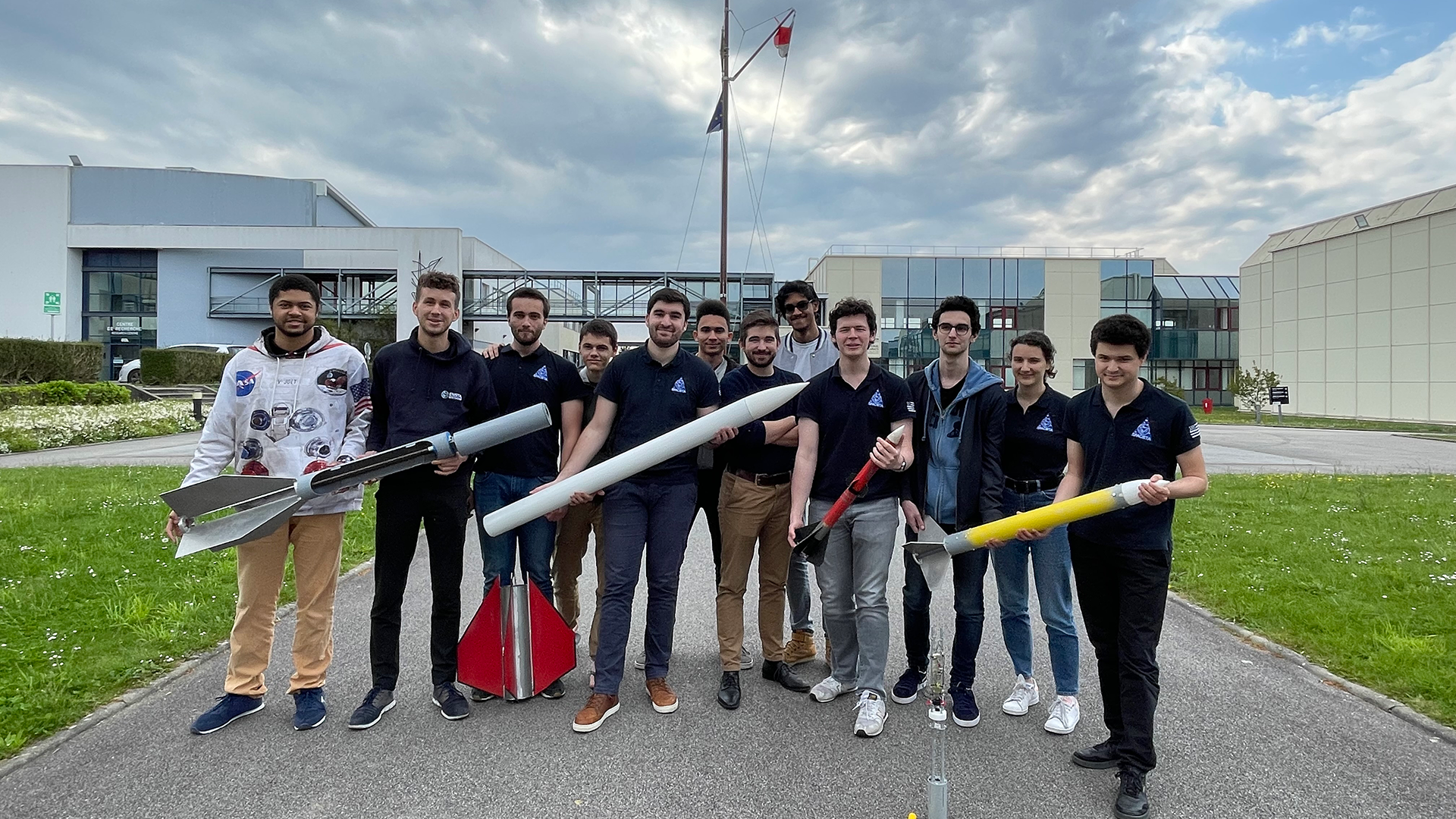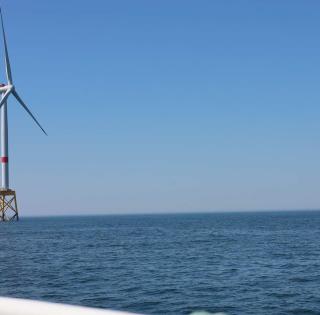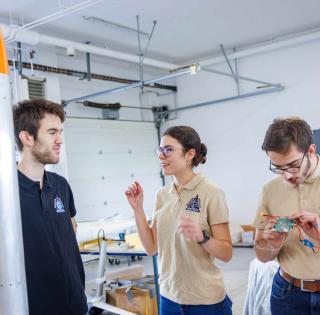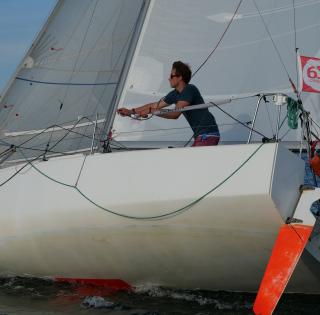
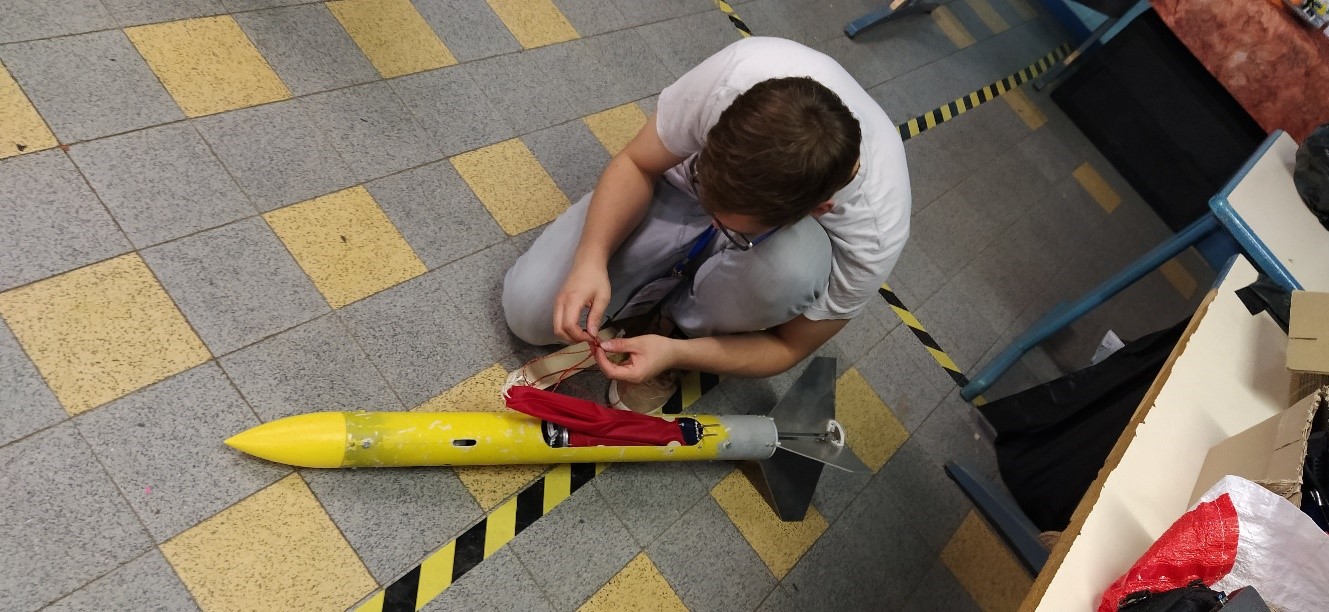
A club open to everyone
All students are welcome to join our club if they’d like to! Students with a range of academic backgrounds can work together on designing a mini-rocket as mechanical and electronic skills are required in equal measure. We’re delighted this year that more girls and first-year students have joined than in previous years.
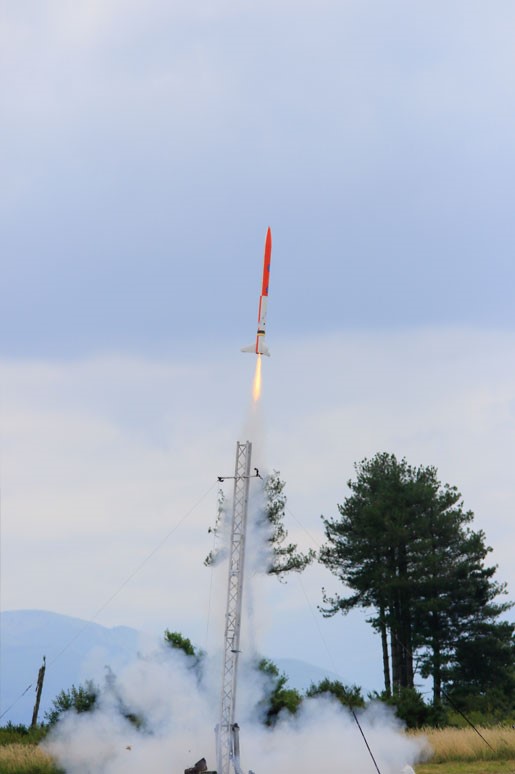
C’Space: an event conducive to mutual support
Every year, Spacieta club members take part in C’Space, at Camp du Ger, where the 1st Parachute Hussar Regiment is stationed in the Tarbes region (Southwest France).
Student clubs from all over France come together at this event to launch the rockets on which they have been working. Over the space of one week, several dozen mini-rockets and experimental rockets are launched.
In 2022, Spacieta club members developed three projects – two mini-rockets and one experimental rocket. Only the Tonnerre de Brest mini-rocket successfully launched at the event in Tarbes. Launch of the other two projects (Imprudente and Kelar I) is postponed to 2023.
The event in 2022 was tiring because of the heatwave and fraught with a number of problems. But despite the stressful situation, students from the different clubs made a concerted effort to help each other out, for example we had to borrow another school’s drill on more than one occasion, and this brought us closer together over the course of the event.
Ambitious projects for 2023:
The engineering students are hoping to launch more rockets at the C’Space event in July 2023. The Imprudente and Kelar I projects will continue. New mini-rocket and experimental rocket projects are also being planned. This year for the first time, the mini-rockets will propose an embedded experiment on-board (a release of Cansats: small cans less than a liter in size, with integrated advanced electronics).
In terms of experimental rockets, we’re currently working on Kellar II, a more ambitious project with a release of Cansats (small cans less than a liter in size, with integrated advanced electronics).
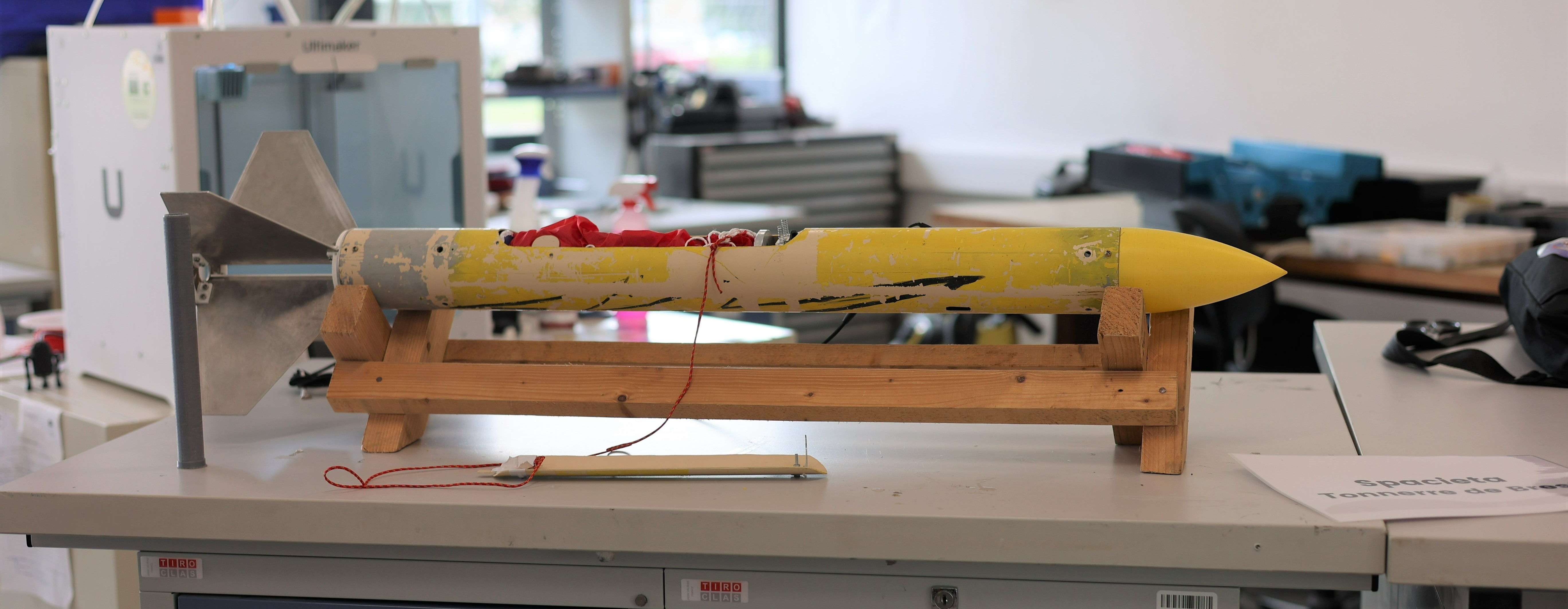
*1 A Minif is a mini-rocket weighing 1 to 2 kg, and measuring around one meter tall. A mini-rocket can fly for one minute on average (up to an altitude of 100-300 meters). This is an ideal project for gaining insight into the world of amateur rockets, and can viably be accomplished in a year. The goal is to design a rocket that can fly and be recovered thanks to a parachute.
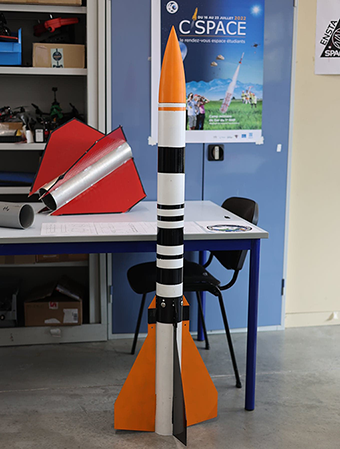
*2 A Fusex is a step up compared to a Minif. It is a larger, experimental rocket (weighing more than a dozen kg) which, thanks to a more powerful motor, can reach altitudes of a few thousand meters. It is more complicated to design, however. The electronic and mechanical parts have to be more ambitious to meet more demanding specifications. As such, it usually takes a team of ten or so members at least two years to design an experimental rocket.
C'Space : du 15 au 22 juillet 2023 à Tarbes.
Trois projets développés durant l'année : 2 Minifs et 1 Fusex.
C'Space en juillet 2022 à Tarbes : la Minif Tonnerre de Brest réussit sa qualification et son vol.
- Le club Spacieta est sur LinkedIn
- de 2016 à 2020 : page facebook du club Spacieta






